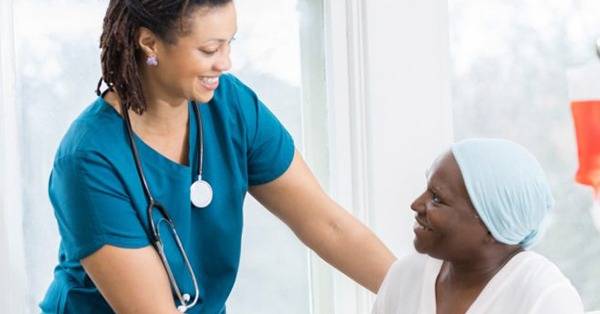- Solutions
- Solutions
- Home Health
- Hospice
- Life Plan Community
- Palliative Care
- Private Duty
- Senior Living
- Skilled Nursing
- Skilled Nursing
- Skilled Nursing Software
- Advanced Insights
- Customer relationship management
- Data and analytics
- Financial & operations management
- Marketing
- Nutrition management
- Referral management
- Regulatory compliance
- Retail management
- Resident engagement
- Revenue cycle management
- Skilled nursing interoperability
- Partners
- Blogs
- Resources
- About
- User Conference

How to: Manage risk post-discharge (part II)
In our last blog post, we went over three strategies successful clinicians use to manage risk. These strategies can help skilled nursing clinicians work smarter, not harder. In part II of this blog series, we dive deeper into the patient journey and explore more ways to leverage data. By doing so, you’ll not only be able to improve staff satisfaction and motivation but, most importantly, will help improve overall quality of care.
Two more ways clinicians can leverage data to manage risk and improve quality of care
1) Leverage data post-discharge
Studies have shown that the risk of readmission is consistently high post-discharge. It also happens to be the event where SNF providers experience the most challenges. Capturing all the critical data during entry gives caregivers a very good start at planning and coordinating care, which can ultimately help to prevent hospital readmissions. Understanding the potential shortfalls is just part of the solution, clinicians are now in a mindset of avoiding them altogether. Technology has empowered clinicians to get in front of this problem, and it begins and ends with data. The list below has some of the essential workflows where data helps improve quality during transitions of care:
- Building and maintaining a longitudinal care record
- Sharing data with the care team (hospital, physician, home health, family)
- Risk data, schedules, actionable data, and real-time alerts
- Technology to continuously feed data into the EHR (like remote monitoring and other devices)
- Trending data, especially change in condition
2) Use clinical data to improve staff satisfaction and motivation
If you are wondering how data will help with your employee experience, begin with understanding what is causing them the most stress and what can make them more efficient. In several discussions with clinicians, there is an overwhelming concern that regulations, multiple systems, and documentation requirements are taking them away from time with residents.
Key areas where leveraging data can support your efforts for staff satisfaction.
- Educate all levels of the care team on how to access data and use it in an actionable way.
- Eliminate dual data entry and ensure there is a seamless way to share data and extract the data.
- When planning policy changes, incorporate the technology needs as part of the change management.
- Real-time alerts are critical and change in condition data will help prioritize care needs.
- Since providers are investing more in remote devices, the data can be fed into the EHR and used as part of the analysis for risks and changes in condition.
Conclusion
To conclude, being able to successfully leverage data can help skilled nursing organizations in multiple ways. For example, it can help manage risk, improve staff motivation, and enhance your overall quality of care. These strategies are necessary during COVID-19 and beyond so clinicians can work both efficiently and effectively.
Read part I of this blog series.
Disclaimer
The content in this presentation or materials is for informational purposes only and is provided “as-is.” As such, the information and views expressed herein may change without notice. So, we encourage you to seek as appropriate, regulatory, and legal advice on any of the matters covered in this presentation or materials.
Request a demo today for a closer look at MatrixCare.
See what MatrixCare can do for you
Kevin Whitehurst
Kevin Keith Whitehurst, Senior Vice President, Skilled Nursing Solutions, has been a key player in LTPAC technology since 1990. Whitehurst has held many leadership positions including IT Director for one of the first developers of MDS software systems to, most recently, SVP, Client Services for MatrixCare. In his current role, he is responsible for the success of the Skilled Nursing Solutions Group and oversees Product Management, Professional Services, Sales and Marketing, and Client Support for that group. A 26 year veteran, Whitehurst has dedicated his career to improving Skilled Nursing Providers experience with technology. Whitehurst holds degrees from San Bernardino Valley College and the Los Angeles School of Business and also served in the U.S Air Force.
Related Posts




See MatrixCare in action
Start by having a call with one of our experts to see our platform in action.
MatrixCare offers industry-leading software solutions. Thousands of facility-based and home-based care organizations trust us to help them improve efficiency and provide exceptional care.



